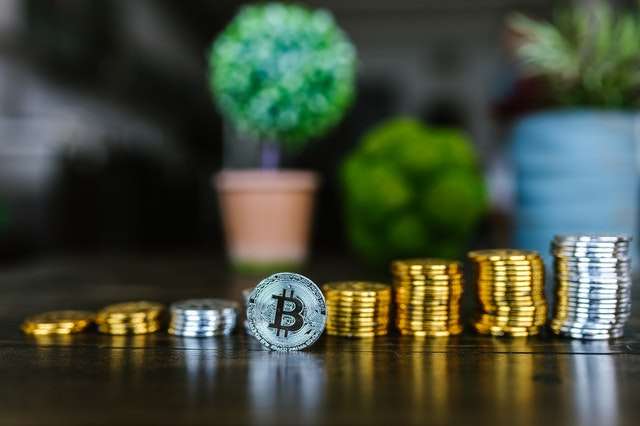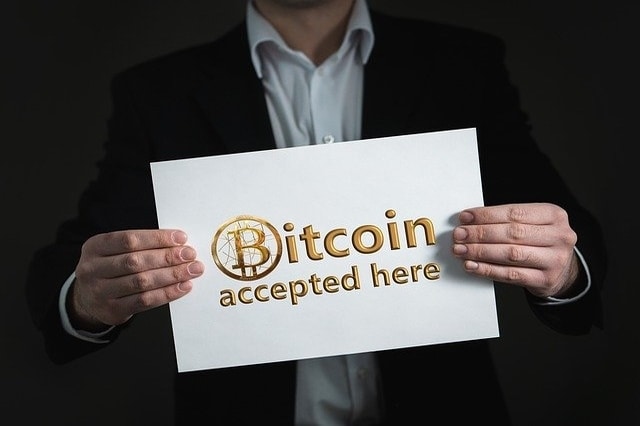Ready to Jump into Crypto? Not So Fast!
Once upon a time—well, as far back as 2009, when Bitcoin was first created—cryptocurrency was the wild, wild west of investing. But barely a decade later, trading in crypto is on its way to being fairly mainstream. How common is it to deal in crypto? Today, about 16% of us in the US have, at one point in our financial lives, purchased or traded crypto. Young men are the most enthusiastic about crypto: about half of all American men between the ages of 18 and 29 have some crypto experience.
Crypto skews generally towards our younger generations. An estimated 94% of crypto buyers are millennials or members of Gen Z. Cryptocurrency has permeated one of the most common financial products out there—the home mortgage. More than 11% of first-time homebuyers liquidated some crypto assets to make a down payment on their homes. There are even some companies that offer mortgages that are backed entirely by crypto assets. These mortgages allow homebuyers to purchase their homes without making a down payment. They pay their monthly payments directly in crypto funds, too.

So how do you buy and spend cryptocurrency? And is crypto investing right for you? Let’s unpack some of those basic questions and give you the background you need to make the decision that’s right for you.
Crypto What?
For those of us used to handling physical dollars and cents, writing checks, and using our credit cards, it may take a minute to wrap our heads around cryptocurrency. For one thing, you can’t touch it or see it. Cryptocurrency exists only in the digital world. It’s one of the growing number of “virtual” things out there.
Some of us might hesitate before turning our money into something virtual. Is that really safe? Surprisingly, many financial experts would argue that it’s way safer than stashing your cash in a checking account, certificate of deposit, or any number of other investment vehicles, from stocks and bonds to precious metals. Cryptocurrency accounts are less vulnerable to fraud, because they are built on blockchain technology.
Blockchains “decentralize” your assets, meaning that it stores them in multiple places. Every penny worth of Bitcoin, Ethereum, or the more than 12,000 cryptocurrencies exists in multiple digital places. And yes, we did say 12,000! You have a lot of choices when it comes to buying crypto.
Blockchains act as financial ledgers. Every cryptocurrency transaction is recorded in the blockchain. Once it’s recorded it can’t be changed. That’s much different than transactions made through your bank or brokerage account. When you make a cryptocurrency transaction, four things are noted in the ledger: the date and time of the transaction, the amount sent from sender to receiver, the sender’s address, the receiver’s address, and the date and time of the transaction. Sounds simple, right? But because this data is dispersed across a network of computers, it’s very complicated—though not impossible—to hack a cryptocurrency account. We’ll discuss the risks associated with crypto accounts when we talk about crypto wallets—the other key technology used for making crypto transactions.
Where Can You Buy Crypto?
Cryptocurrencies are sold through entities called crypto exchanges. There are nearly 600 cryptocurrency exchanges worldwide. How do you know which is the best cryptocurrency exchange for you? That depends on what you’re hoping to accomplish. Some crypto exchanges are like boutiques—where you might find a variety of Chanel, Gucci, and Ralph Lauren pieces. They’re actually pretty rare. More commonly, crypto exchanges offer a wider selection of crypto “brands”, as you might find in a large department store. If you’d like to focus on the best-known cryptocurrencies, a boutique-style exchange may be the best choice for you. But if you want to seriously diversify your crypto portfolio, there are hundreds of exchanges that cater to that strategy.
When choosing a crypto exchange, the most important thing to know is how the exchange protects itself. The best crypto exchanges are very transparent about the security measures they take. If an exchange doesn’t tell you about its security protocols, that’s probably a good reason to choose another. Does the exchange name its owners and provide its physical headquarters address? That’s another key to deciding whether an exchange is legitimate. With new exchanges entering the market every day, it’s best to choose a long-established exchange. Do the due diligence and research customer and financial press reviews of any exchange you’re considering.
Some crypto exchanges charge transaction fees. Most figure your fees according to a tiered structure. The more you trade over a thirty-day period, the less you’ll pay in fees. Other exchanges charge flat fees per transaction, but these fees may change based on the volume of trading you do. Still, others charge fees based on the amount of crypto you move with fees increasing as you move more crypto. In other words, there’s a lot of variation among crypto exchange fees > Before you choose an exchange, take care to note how to calculate transaction fees. Here’s another wrinkle to consider when moving crypto around: some exchanges charge different fees at different times of the day. They charge more when networks are busy. Your best strategy is to try to time your transactions at off-peak times and make as few of them as possible.
How to Spend Your Cryptocurrency

You can’t use your exchange account like you would a checking account. That’s where crypto wallets figure in the cryptocurrency picture. Once you’ve purchased cryptocurrency from a crypto exchange, to make it tradeable and spendable, you’ll need to transfer it to a cryptowallet. The good news is that many companies offer free crypto wallets. The bad news is that crypto wallets also charge transaction fees. Interestingly, crypto wallet fees typically aren’t calculated by the amount or value of the crypto being moved across the blockchain, but rather how much data is consumed when completing the transaction.
What is a Crypto Wallet?
When you purchase cryptocurrency from an exchange, you’ll be given both a public and a private key to your assets. A public key is meant to be shared. It’s similar to an account number. It allows you to move and receive cryptocurrency in and out of your crypto account. If you buy from multiple exchanges, you’ll be issued multiple sets of keys. Private keys are extremely long series of encrypted numbers. Never give your private key to anyone. Crypto wallets are like keychains: they’re simply where you put your keys.
There are two basic types of crypto wallets, but each is commonly referred to by two names. There are hard wallets, also known as cold wallets. Then there are hot wallets, also known as soft wallets. Which is the best type of crypto wallet? Not surprisingly, experts differ on the matter.
The Pros and Cons of Hard Wallets
A hard (or cold) wallet stores your key on a piece of hardware that’s smaller than a deck of cards. You can buy one for less than $100. This device is not connected to the internet. That’s what arguably makes it safer than a soft (or hot wallet). A hard wallet can’t be electronically hacked the same way as a soft wallet through your computer network. But it can be lost or stolen. At that point, it is possible to hack a hard wallet, though it is less likely. To take advantage of the safety features of a hard wallet, store it in the most secure location you can think of. A safe deposit box comes to mind. Don’t carry it in your purse or wallet and never leave it in your car, of course. If you exercise proper precautions, hard wallets are very secure.
But what makes a hard wallet bad is the same thing that makes it good. As a separate device, it’s not always at the ready. Let’s say you’re at your office when you notice volatility in the crypto market. You may want to cash out of some of your crypto assets or trade one currency for another. But your hard wallet is miles away from your desk at home. You can’t jump on the intelligence you have without retrieving your hard wallet. That’s why hard wallets are often recommended for people who plan to hold on to their crypto assets long-term without spending or trading them.
The Pros and Cons of Soft Wallets
Soft wallets (or hot wallets) are entirely digital. You access them via the internet. That means you can connect to your soft wallet and your crypto funds from anywhere at any time. If you’re an active trader or want to spend cryptocurrencies at one of the growing number of businesses that accept cryptocurrency in exchange for goods, a soft wallet will make it easier to go about your business. One study reports that about a third of businesses now accept cryptocurrency as payment. Home Depot and Starbucks are among them! So your options for spending your crypto are growing. If you want to use your crypto wallet like you do your debit card, a hot wallet may be the right choice for you.
But any data connected to the internet is subject to hacking. Hot wallets may be more convenient, but most experts agree that they are less secure than hard wallets. As a precaution, never use your hot wallet on a public WiFi connection. Can you still buy a latte at Starbucks? Sure. But just be sure you’re connected to the internet through a private hotspot, not the hotspot Starbucks provides as a convenience to its customers. Save that one for playing Wordle.
Is Investing in Cryptocurrencies Right for You?
Cryptocurrencies can be a smart part of a diversified investment portfolio. They’re considered a high-risk asset, though, so if you tend to be financially conservative, you may not want to get involved in the crypto market. Experts often suggest that you never invest more than you can afford to lose in any asset. Crypto markets swing high and low. They may be better suited to long-term investors who can weather the ups and downs comfortably. But overall, the crypto market has performed exceptionally over the past decade. A single Bitcoin, for example, was worth about $1000 in 2013 but rose to a high of over $62,000 in February 2022. Then again, in April 2022, its price fell to just over $39,000. Volatility is the name of the game in the crypto market.

As an entrepreneur looking to grow your business, owning cryptocurrencies now offer a valuable benefit. More and more lenders are offering small business loans that are secured by crypto. When you take out a crypto-backed loan, whether it’s to buy a new piece of equipment or invest in a robust marketing program, some lenders will allow you to borrow without performing a credit check. They’ll permit you to borrow up to the amount of cryptocurrency you pledge to collateralize your loan. And they may do so without performing a credit check on you or requiring you to submit a business plan. So owning crypto may give you access to quick cash to fund your growth, all the while letting you hold on to your crypto investments, which may increase in value. Then again, they may not. And you’ll still be on the hook for the total amount you borrow. That’s the risk you take when borrowing against crypto, but if you’re willing to take it on, a crypto-secured commercial loan can put you on the fast track to growth.




